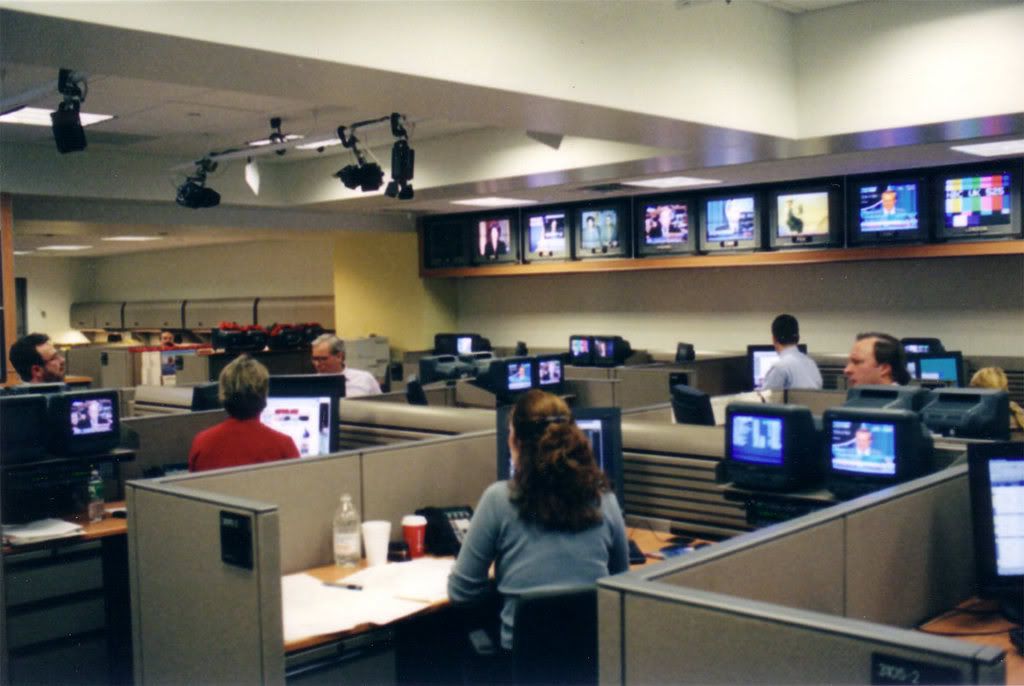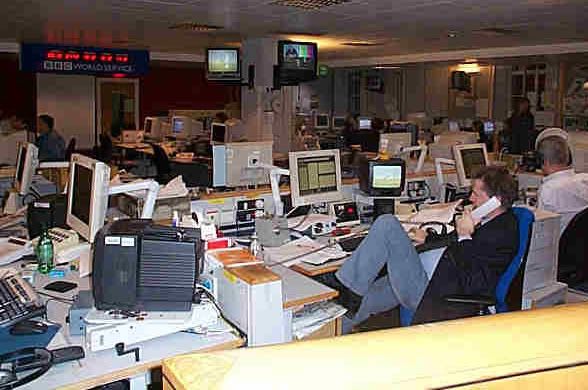How The Media Can Change, Why They Won't
 When was the last time you ran into someone who said, "I just love the media. They're so fair!" Right. So check this out:
When was the last time you ran into someone who said, "I just love the media. They're so fair!" Right. So check this out:More than half of Americans say US news organizations are politically biased, inaccurate, and don't care about the people they report on, a poll published Thursday showed. ...And that's the good news for the MSM. Pew also found that a quarter of Americans now get their news primarily from on-line sources (Isn't that good news for America?), and among those news-foragers, the opinion of MSM is much, much worse. Here's the Pew news release:
Among those who get their news from newspapers and television, criticism of the news organizations was up to 20 percentage points lower than among Internet news audiences, who tend to be younger and better educated than the public as a whole, according to Pew. (AFP)
The internet news audience – roughly a quarter of all Americans – tends to be younger and better educated than the public as a whole. People who rely on the internet as their main news source express relatively unfavorable opinions of mainstream news sources and are among the most critical of press performance. As many as 38% of those who rely mostly on the internet for news say they have an unfavorable opinion of cable news networks such as CNN, Fox News Channel and MSNBC, compared with 25% of the public overall, and just 17% of television news viewers.I am in the messaging business, and if the news media were my client, the last thing I would tell them to do is to say (with either condescension or an effete whine), "We are too objective." For an industry that makes its bread and butter by supposedly being able to read through the lines to get the truth, they are asking quite a lot of us to believe that.
The internet news audience is particularly likely to criticize news organizations for their lack of empathy, their failure to "stand up for America," and political bias. Roughly two-thirds (68%) of those who get most of their news from the internet say that news organizations do not care about the people they report on, and 53% believe that news organizations are too critical of America. By comparison, smaller percentages of the general public fault the press for not caring about people they report on (53%), and being too critical of America (43%).
Of course, the media are not reading between the lines to find the truth anymore, and that's the problem. The sophisticated American readership, which now how multiple sources from CSPAN to the blogs to cross-check against can see what the media's up to -- and it's seen by most as being too critical of America, i.e., buying the leftist line.
If the media are interested in surviving -- and that's a very big if -- here's what they need to do:
- Admit to everyone that yes, they are biased, and that is not satisfactory.
- Then either pledge to become less biased or call a spade a spade and declare themselves to be either liberal or conservative and report accordingly.
- If they go for becoming less biased, they need to announce an immediate affirmative action program to replace liberals with conservatives (or perhaps the other way around, should the Washington Times and the one or two other decidedly conservative media outlets decide to declare themselves not conservative) in all positions form copy boy to publisher.
- Agree to be monitored by the Department of Labor and understand that they will be subject to lawsuits if they don't become unbiased quickly enough.
 Why isn't the media doing this? The answer may be in that Pew finding that 68% believe the media do not care about the people they report on.
Why isn't the media doing this? The answer may be in that Pew finding that 68% believe the media do not care about the people they report on.It is easy for reporters, and especially editors and producers, to look down their noses at everyone else in society. They are the ones who reach the multitudes. They are the ones who know how to gather and sift and package so the complex becomes understandable, the boring becomes entertaining.
My Uncle Bud was the city editor of the South Bend Tribune for years and was then and is now one of the warmest, most wonderful guys I've ever met. But I have no idea what his news judgment was because that judgment is played out in a very private place, in sharp contrast to the openness the media demands of the rest of society.
When you put together people with power who think they are a step above the others with a secretive, closed process, it's a formula for one-sidedness.
If the media wants to turn this around -- and I really don't think they do, because that would put an end to their self-imposed superiority and their members only club -- they are going to have to open the doors; not just the doors to the newsroom, but the doors to the editorial board room, because when things get this bad, transparency is the only option available to restore trust.
hat-tip: memeorandum
Labels: Media, Media bias, MSM




<< Home